That’s a question I’ve been asking for quite some time now. I’ve been to churches that at one time bore the label reformed but have since moved away from it. I’ve been to churches that claim to be reformed but are only soteriologically Calvinistic, and I’ve been to churches that play Bethel, Hillsong, and a host of other worship style music made known by groups of people labeled as heretics. I’ve been to historic reformed churches that never mention Jesus in their music, and I’ve been to reformed churches that play hymns and psalms only, some with a piano, others with an organ, and others with no instruments at all whatsoever. All these have some form of “reformedness” in their name, history, or doctrine.
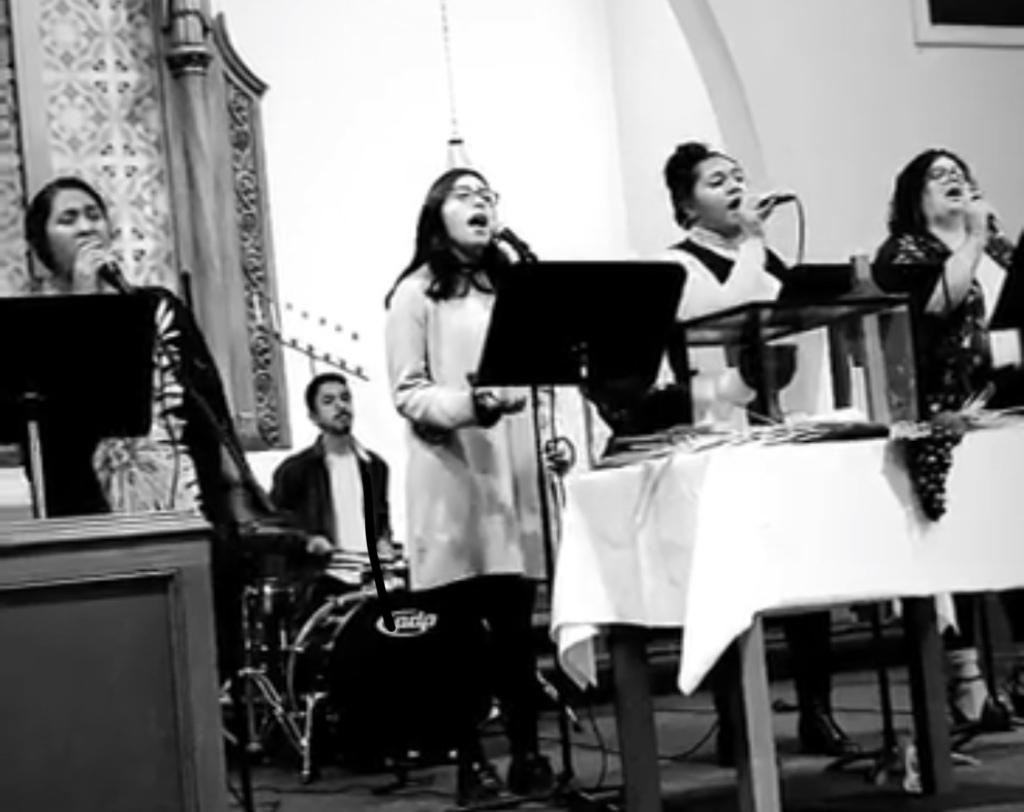
So what is reformed worship? That’s a great question and you’ll probably get different answers depending on who you talk to. There’ll be those that claim the RPW, or regulative principal of worship, and then even within that RPW circle, there are levels of how that’s played out. What separates Regulative Principal from Normative Principal. What do we go by? What the Bible explicitly commands or whatever the Bible does not explicitly forbid? Well, I’ve seen the way both sides do it and to be honest… I’m not sure I can identify with either extreme position. We find ourselves in that tension between the two. We can definitely see both sides, they both have merit, and can also both be dangerous. Dangerous to what? Well, I’d say as we endeavor to worship God in spirit and truth as instructed in John 4:24, “God is spirit, and those who worship him must worship in spirit and truth.”
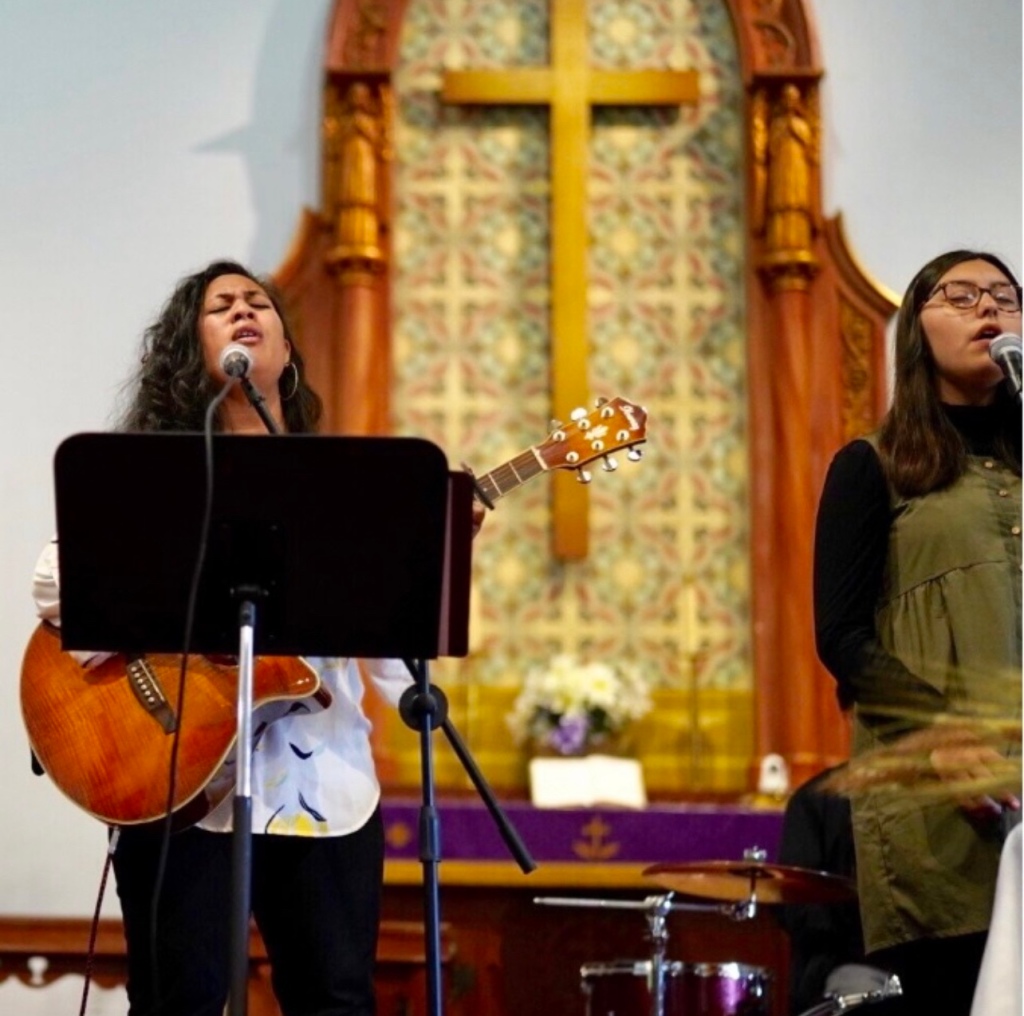
Now before you try to jump me or call me out… we know that worship of God is much more than song, however, I am specifically addressing how we worship God with and through song. I’m sure for some of you reading this, like myself, have often asked, what exactly does it mean to worship God “in spirit and truth”? Being Latino, the biggest conclusion was to worship God with all that I am and how He made me. Because I’m Latino, I’m used to worshipping a certain way, in a way that truly exemplifies my culture. We lift holy hands, we sing at the top of our lungs, the music is loud, the singing passionate, tears frequently roll down cheeks, and smiles adorn our faces as we lift our voices to honor our Savior. We worship Him according to His truth, to His Word, and to exalt Him, not our selves.
But the truth is this, this type of worship is just not commonly found in most Reformed circles. For many people of color, it’s only natural for us to raise our voices and honor Him who saved us, it’s not enough to just sing theologically accurate songs, we need to sing them with all of our hearts, and we need to mean those words with all of our strength, that’s what we call worshipping God in spirit and truth. I think that for us to do so in any other way is to deny how He’s wired us and that would just be wrong.
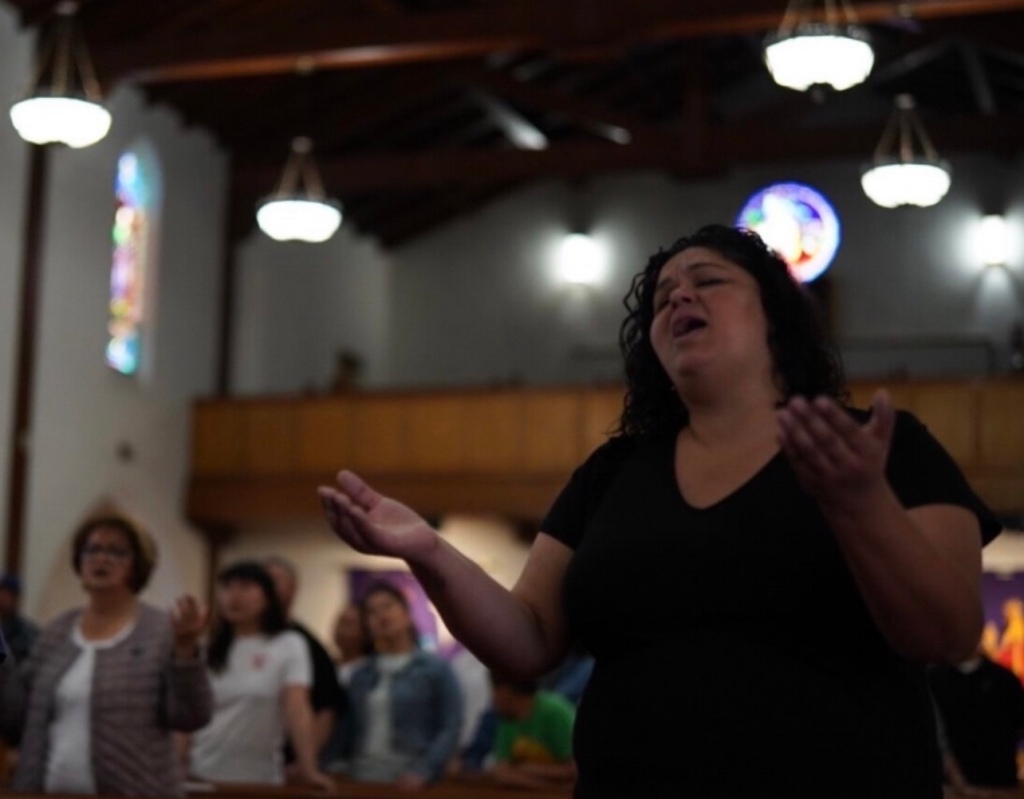
There are many, if not most, Reformed churches that don’t have this style of worship, it’s most often very quiet, not much emotion or expressive passion, but doctrinally sound singing. (Disclaimer: I’ve heard this referred to as “white worship”, I don’t use nor approve of this term). This is a very real thing and important subject for people of color in Reformed circles, and they (we) don’t really care for that style of worship. Why is this even a thing for me? Well, as we endeavor to plant confessionally Reformed churches in hard places like Wilmington, San Bernardino, Santa Ana, and Phoenix, these places are all under resourced communities of color, referred to as “the hood” and to sing Psalms only, as some say is the only way to worship God, would be pretty awkward… not wrong, just awkward. Some churches welcome a piano, others much prefer the beloved organ, while others still prefer to sing without any instruments at all, but only “a capella,” these too would be awkward in the hood.
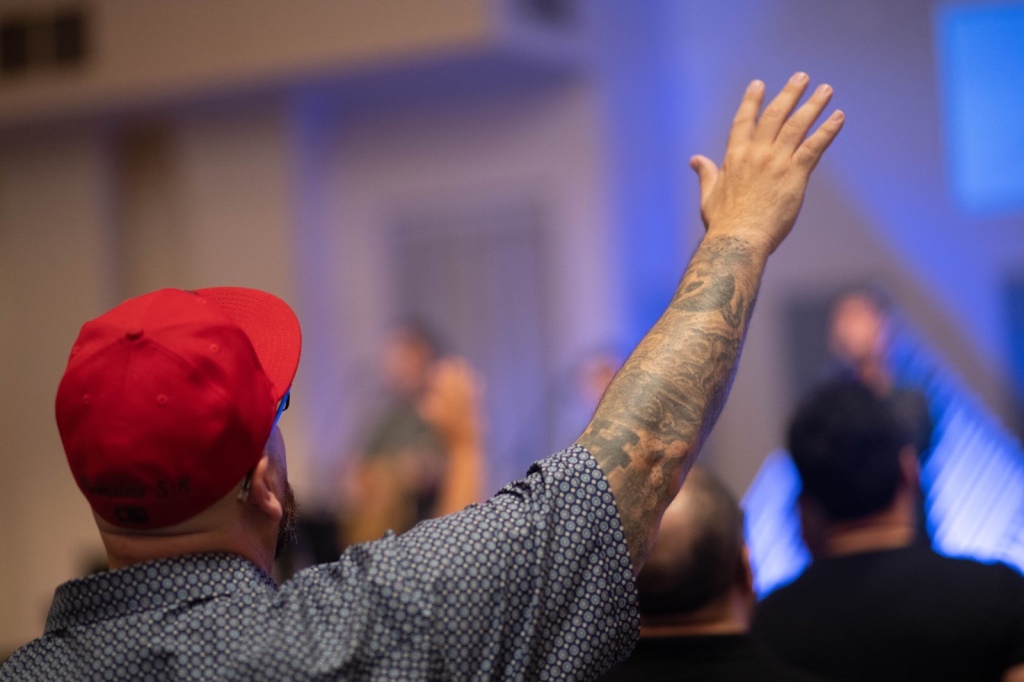
Some churches are okay with psalms and hymns, others prefer EP (exclusive psalmody) or psalms only, while others still stay away from both and focus mainly on contemporary style worship. And here’s the reason for this post altogether, our church isn’t your typical Reformed church, we’re an anomaly trying to figure out how to be true to what we believe in the Bible, true to how God has wired us as a multiethnic church of not just blacks or whites, but mainly Latinos, Samoans, and Asians! We want to bring the deep truths of God’s Word to a community in a language and style they can relate to and understand. You see, if they can understand, then the easier they can know the Lord, repent and turn to Him, fall in love with Him deeply, and serve Him passionately.
How can we honor God in spirit and truth? How can we do what we’ve clearly been called to as we, in all our “Reformedness,” seek to reach a community with the Gospel of Christ… that they’d know Christ came to save sinners like us? We sing psalms, hymns, contemporary music, as well as classic Spanish worship songs. To some Reformed folk, they probably think we’re not Reformed enough, to others they might think we’re smart and thinking outside the box, and to others still, they might even say we’re not Reformed at all because we don’t do things like them. What is my response to that? Well, let’s see how reformed we’re not. We’re Calvinists, Confessional, Creedal, Covenantal, and we baptize babies. We’re Heidelberg Catechism teaching, Belgic Confession affirming, Canons of Dort explaining, Westminster Confession of Faith pushing Reformers… but our worship doesn’t look like a lot of Reformed churches.
My family and I have visited many Reformed/ Presbyterian churches and though the theology and doctrine is on point, most times the sermons have been long and dry, worship sad with no one smiling or truly demonstrating joy as they sing to worship their Savior… it’s like the lyrics we’ve heard sung aren’t reflected on the faces singing them. The people have not always been friendly or very hospitable, the attitudes have not always been warm… at one church we needed to pole vault over the fence around the Lord’s Table… they’ve not always been great experiences. We don’t want to be a Reformed church that people walk away from questioning whether or not we really believe what we’re preaching and teaching.
Then there are Reformed churches that have taken steps to move away from their reformed roots, some even removing the label “Reformed” altogether from the church’s name and church signs. There are churches that have no real semblance to that of a Reformed church in their preaching, worship flow, and especially their song choices. Many song selections are frequently heard blasting their sanctuaries that can easily mislead the church in the doctrine they sing because it’s just feel good lyrics that exalt self and not the risen Christ, songs that are meant to secure one’s mind in knowing that God has a good plan for them, one to prosper them in career, health, and finances… but really make no reference to the Cross, repentance, or addressing sin. We don’t wanna be like that!

So what is Reformed worship? How can we gather a group of whites, blacks, Asians, Latinos, and Samoans that adhere 100% to Reformed Theology and worship the Triune God we profess in Spirit and in truth? How can our ethnicity, culture, and passion be expressed as we lift up our voices to worship in song the Living God whom we have placed all of our faith in? How can we do this and still be Reformed in our worship? I don’t think we have to do anything different than what we’re already doing… the music we sing to our Jesus exalts Him, it places Him at the center of our worship, and not ourselves.
Our worship Director, Rachel Fao, makes sure that the music we sing points us to the Cross, it calls us to repentance, it addresses our sin, it guides us towards the atoning work of Christ… our worship addresses God’s compassion, His mercy, His grace, as well as His wrath, and His anger when we sin against Him. I think that is “Reformed” worship… being truthful to who we are… repentant sinners… seeking to honor our King, music that aligns with Scripture… and not faking the funk, not being afraid to raise holy hands, sing at the top of our lungs and not being afraid or embarrassed when tears stream down our cheeks as we sing.
But the good thing is that we also have historical documents addressing what I’ve said here… and I think they would affirm what I’m saying. Some would argue that the Belgic Confession (1559) in Article 32 addresses a dogmatic view of the Regulative Principal of Worship as it points to the Order and Discipline of the Church… I think we’d agree completely and say that we are worshipping God in spirit and truth, to do so any other way would go against that Scriptural command. Take a look at a portion of Article 32 in the Belgic Confession:
“Therefore, we reject all human innovations and all laws imposed on us, in our worship of God, which bind and force our consciences in any way. So, we accept only what is proper to maintain harmony and unity and to keep all in obedience to God.”
How can any follower of Christ Jesus deny this? I think the problem is in how folks interpret this. There is no law nor human innovation being imposed on us (RCLA) for the worship of God, could instruments perhaps be included in that category of human innovation? If so, what is ok then? Piano? Organ? Neither… just a capella?
What does the Heidelberg Catechism (1563) say regarding this?
Lord’s Day 35
Q. 96 What is God’s will for us in the second commandment?
A. That we in no way make any image of God nor worship him in any other way than has been commanded in God’s Word.
John 4:23-24, “…the Father is seeking such people to worship him. God is spirit, and those who worship him must worship in spirit and truth.”
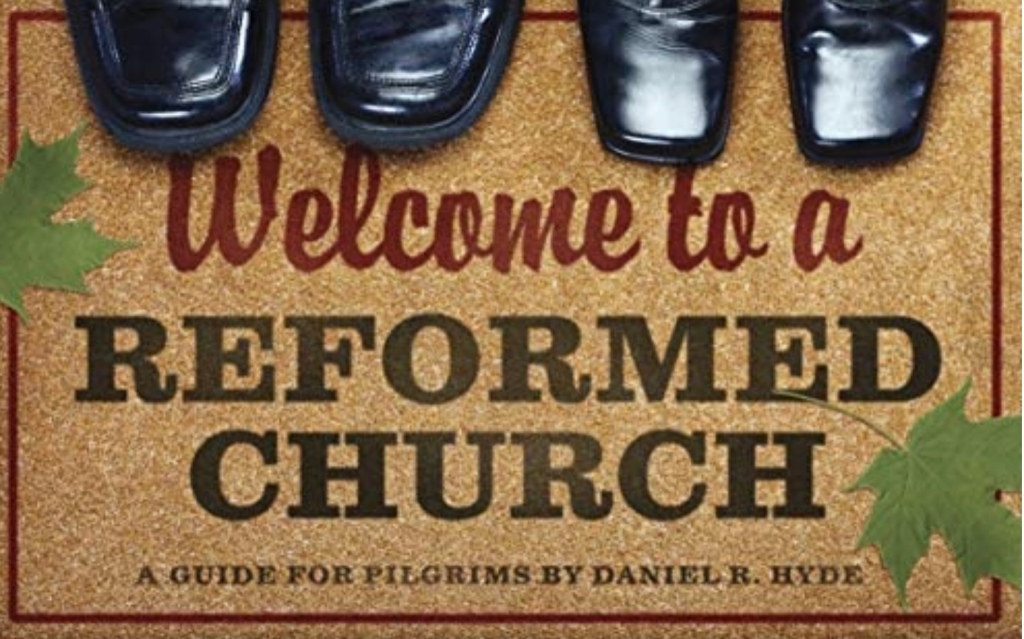
And there it is again… God wants us to worship Him in Spirit and in truth! If God made me Mexican, passionate, with an abundant joy to sing to Him at the top of my lungs, to feel to the depths of my soul the words and lyrics I sing to Him, is that wrong? To be so entirely grateful to God for having saved me, and raise my hands during our gathered worship of God on the Lord’s Day, is that wrong? Or do any of the historical documents have a decibel meter for the volume of our worship? Does the Bible specify that we must contain ourselves during our singing? What if by doing so we we feel fake, like we’re holding back and not really worshipping Him in spirit and truth? What is the invisible line one cannot cross? Lifting hands? Singing loudly? Praise dance? You won’t see a praise dance at our church, but you will most definitely see that at predominantly black churches. Look at what the Second Helvetic Confession says:
Second Helvetic Confession (1536)
Chapter XXVII: Of Rites, Ceremonies and Things Indifferent
“If different rites are found in churches, no one should think for this reason the churches disagree.”
Are you picking up what I’m putting down? I end with the same question with which I started… what is “Reformed worship”? I wish I had a clearer answer, but I don’t… but I do hope and pray that this short blog post made you think about it and encourage you to sing songs that are aligned with Scripture, and that all we do be done in an organized fashion, and not hold back as we lift our voices to the Triune God who saved us. Amen?
Follow us at www.reformedchurch.la or on social media to keep up with what we’re doing: